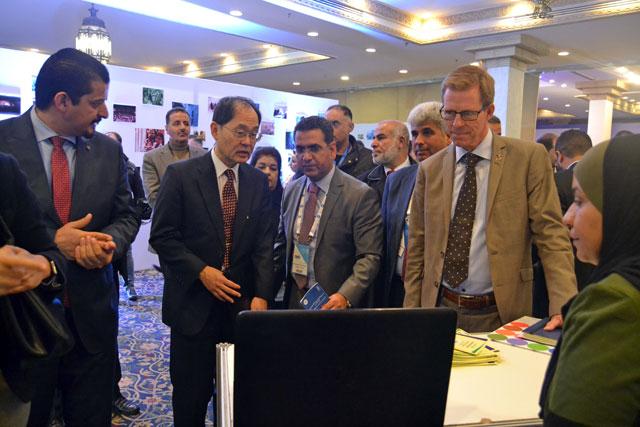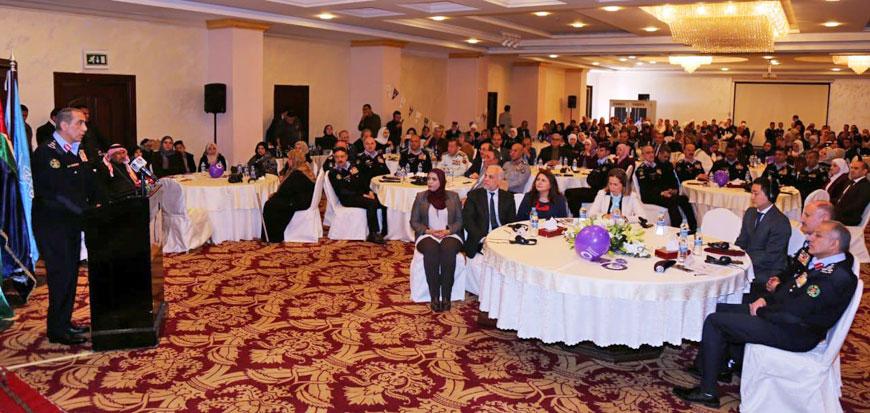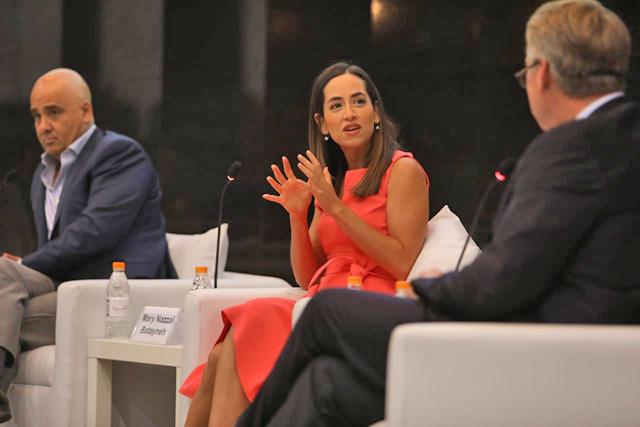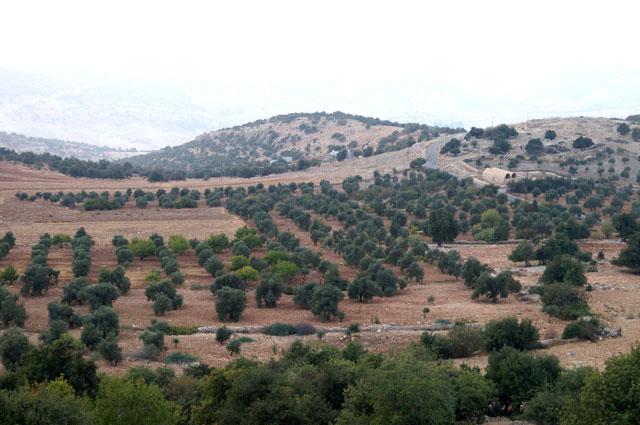You are here
UNDP presents results of 50 projects implemented over past three years
By Ana V. Ibáñez Prieto - Dec 16,2018 - Last updated at Dec 16,2018

Japanese Ambassador to Jordan Hidenao Yanagi attends a UNDP presentation on the results of 50 projects implemented in the Kingdom over the last three years. The projects were part of an initiative established by the Japanese and Swiss governments (Photo by Ana V. Ibáñez Prieto)
AMMAN — UNDP Jordan on Sunday presented the outcomes of 50 projects implemented under the UN agency´s Community Cohesion Grants Mechanism (CCGM), carried out over the last three years.
The mechanism aimed at improving the social cohesion of host communities in partnership with community-based organisations (CBOs). Implemented across the Kingdom, the projects affected over 45,000 beneficiaries in some 1,500 community activities, UNDP Jordan said in a statement.
The presentation of the results came at the launch of the Partnership Forum on Social Cohesion in Jordan, held by UNDP through today under the framework of an initiative aimed at advancing community peace and cohesion in the governorates of Mafraq, Irbid, Zarqa, Tafileh and Maan.
Established in 2015 as a partnership between the Japanese and Swiss governments, the project fostered community engagement with governmental institutions, local activists and grass-root CBOs.
“We live in an overly volatile world, but even when surrounded by conflict and crisis, Jordan has managed to remain a beacon of stability,” UN Resident and Humanitarian Coordinator in Jordan Anders Pedersen said during the presentation.
“Over the past eight years of crisis, our partners and friends in Jordan have regarded the Syrian refugees as brothers and sisters, remaining hospitable despite all the challenges,” Pedersen continued, thanking the Kingdom for “respecting the refugees’ right to choose the appropriate time for their return, and for enabling them to stay for as long as they need to”.
“Jordan is a home for all Arabs and this is what we have been taught by the Hashemite leadership,” said Youth Ministry Secretary General Thabet Nabulsi.
Through the CCGM, community members and local institutions engaged with their neighbours and implemented responses to local challenges with locally developed solutions, according to UNDP.
UNDP Country Director Sara Ferrer-Olivella pointed to the emergence of the MATEEN platform as a key result of the UN agency’s engagement with CBOs.
Ferrer-Olivella described the new initiative as “a network of organised, effective grassroots groups with the proven capacity to enhance social cohesion, strengthen the role of civil society and build opportunities for multi-stakeholder dialogue and discussion”.
Sahem Tarawneh, general manager of MATEEN member Al Wahat for Development and Training, told The Jordan Times that “we seek to enable youth to create their own initiatives, and for this purpose, we have recently developed a programme with Mutah University, which has resulted in five new projects in Zarqa”.
The organisation offers services focused on sustainable development, human rights leadership and personal growth across the governorates of Amman, Mafraq, Irbid, Ajloun, Karak, Tafileh, Maan and Aqaba, according to Tarawneh.
The Tafileh-based Queen Zein Al Sharaf project, another MATEEN member, aims at empowering women economically, socially, legally and politically by providing women with skills for the labour market.
Ruba Mahiaisen, a member of the organisation, told The Jordan Times that the project is currently working on training Tafileh Technical University students, noting that participants are now working on greening the university campus.
Related Articles
AMMAN — Police Chief Maj. Gen.
AMMAN — UN Jordan on Tuesday brought dozens of business leaders together to “create market opportunities for a sustainable world” at the 17
AMMAN — Eight community-based organisations (CBOs) on Tuesday received grants worth $350,000 to implement pilot projects enhancing the role



















